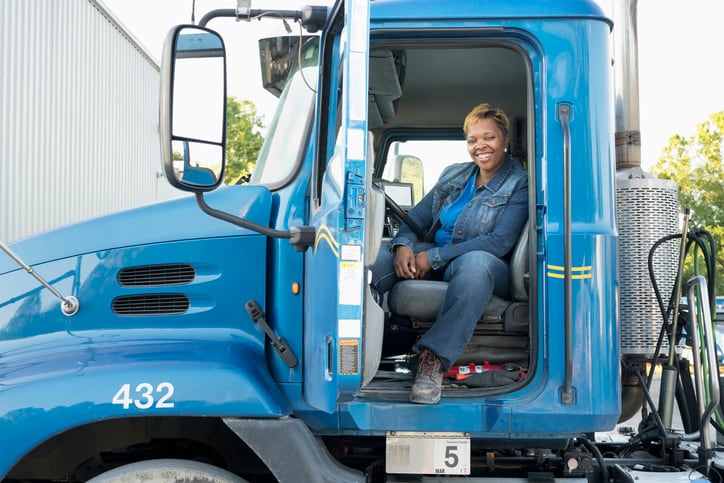At a Senate Appropriations Subcommittee on Agriculture, Rural Development, Food and Drug Administration and Related Agencies hearing today, CBA vice president of product policy Sarah Gallo explained a deputy commissioner for foods, with accountability to the commissioner and direct line of authority over each of the agency’s major food program units is necessary.
According to Gallo, the current model - which divides food oversight between the Center for Food Safety and Applied Sciences, the Center for Veterinary Medicine and the Office of Regulatory Affairs - “undercuts communication and collaboration at the expense of efficiency and responsiveness.”
As a result, she said, “companies are halting innovation in food packaging and novel foods because of delays in FDA’s review of industry submissions,” and “we hear concerns about an ability to innovate, grow and thrive because FDA lacks streamlined decision making for the range of products within its jurisdiction.”
'We hear concerns about an ability to innovate, grow and thrive because FDA lacks streamlined decision making'
Gallo spoke alongside leadership from FDA and Consumer Reports who were gathered by the subcommittee this morning to testify at a hearing on food safety and the Food and Drug Administration, which has come under the microscope following a series of regulatory and oversight delays related to the widespread infant formula shortage, concerns about heavy metals in baby food, regulations related to sodium reduction and delayed safety standards for the water used to grow fresh produce, among other concerns.
According to Gallo, these high-profile issues are only the tip of the iceberg related to FDA’s slow, or at times non-existent, response related to food oversight.
“The lack of a single, full-time, fully empowered, expert leader affects all aspects of the FDA’s food program,” Gallo said, citing as examples how “inefficient decision making has slowed reviews, [is] hindering progress and even rendering innovation obsolete,” “inexperienced and undertrained inspectors are being sent into the field,” and the lack of a “common strategic decision, clear priorities, sound resource management and internal accountability” for FDA’s major food programs is hindering the industry’s ability to thrive.
This is not the first time CBA and other industry stakeholders have asked FDA to appoint a deputy commissioner for foods who has relevant experience and appropriate food credentials and who can quickly implement change that will benefit industry and consumers.
'The lack of a single, full-time, fully empowered, expert leader affects all aspects of the FDA’s food program'
The emphasis on appointing someone who is experienced with food stands in direct opposition to the FDA Commissioner, a role typically filled by someone with experience in the medical industry, which has become a sore point for many in the food industry who feel overlooked or shoved aside as the ‘drug’ side of FDA is prioritized.
Earlier this spring, a coalition of 30 organizations, including CBA, led by Consumer Reports, sent a letter to the agency asking for the food program to be united under a deputy commissioner for foods.
This led to a meeting earlier this summer with FDA Commissioner Robert Califf and Principle Deputy Commissioner Janet Woodcock, which CBA’s vice president of regulatory and technical affairs Roberta Wagner characterized in a read out as “productive.”
'The time is right to transform the foods program'
Following the meeting, Wagner said that Califf and Woodcock “acknowledged that the time is right to transform the foods program.”
Seizing on this, Gallo said in prepared comments submitted to the senate subcommittee that “the creation of a deputy commissioner for foods does not require an act of Congress or rulemaking.
“In fact,” she said, “the position existed during the Obama administration and worked to ensure programs and oversight work at optimal levels.”
The Obama administration oversaw significant changes in food management, including the update of the Nutrition Facts labels and the establishment of health-related diet standards.
A deputy commissioner for food is only the first step
As essential as CBA and others believe appointing a deputy commissioner for food to be, Gallo was quick to point out that is “step one,” but “not the only step.”
She argued that the agency also must reframe FDA’s food program operations in a way that embraces technology and can move not just at the speed of industry, but the “speed of the consumer, meeting their rapidly changing preferences and demands.”
While CBA is “in the process of articulating these policies,” Gallo said they would likely include “modernizing inspections, labelling and recall process, new policy formulation to address e-commerce and the use of technology and new models for FDA-industry collaboration.”
To facilitate with this, CBA calls on FDA to “convene an independent, outside panel of experts to address modernization of food program policy and procedures,” and encourages it to draw on lessons learned during the pandemic.
Lessons learned from the pandemic
During the early days of the pandemic, FDA and industry worked together closely and quickly to address several challenges facing the supply chain so that consumers could continue to access food as they sheltered at home.
These included adopting remote inspections and the use of third-party auditors to quickly verify regulatory compliance. The shift from all in-person assessments not only meant the agency could quickly assess more facilities, but it also saved significant time and money for both industry and the government, Gallo said.
She also praised the process created during the pandemic to address industry questions and solve problems in real time – something she said should “be the new normal post-pandemic.”
CBA also would like FDA to maintain food labeling flexibility allowed during the early days of the pandemic and a “just in time” process for quickly assessing documents and practices created by industry stakeholders to ensure consumer safety and address and keep industry moving.
While Gallo recognized this may sound like a tall order, she noted that “our industry stands ready to respond to and partner with the FDA to meet the essential, daily needs of American families.”




